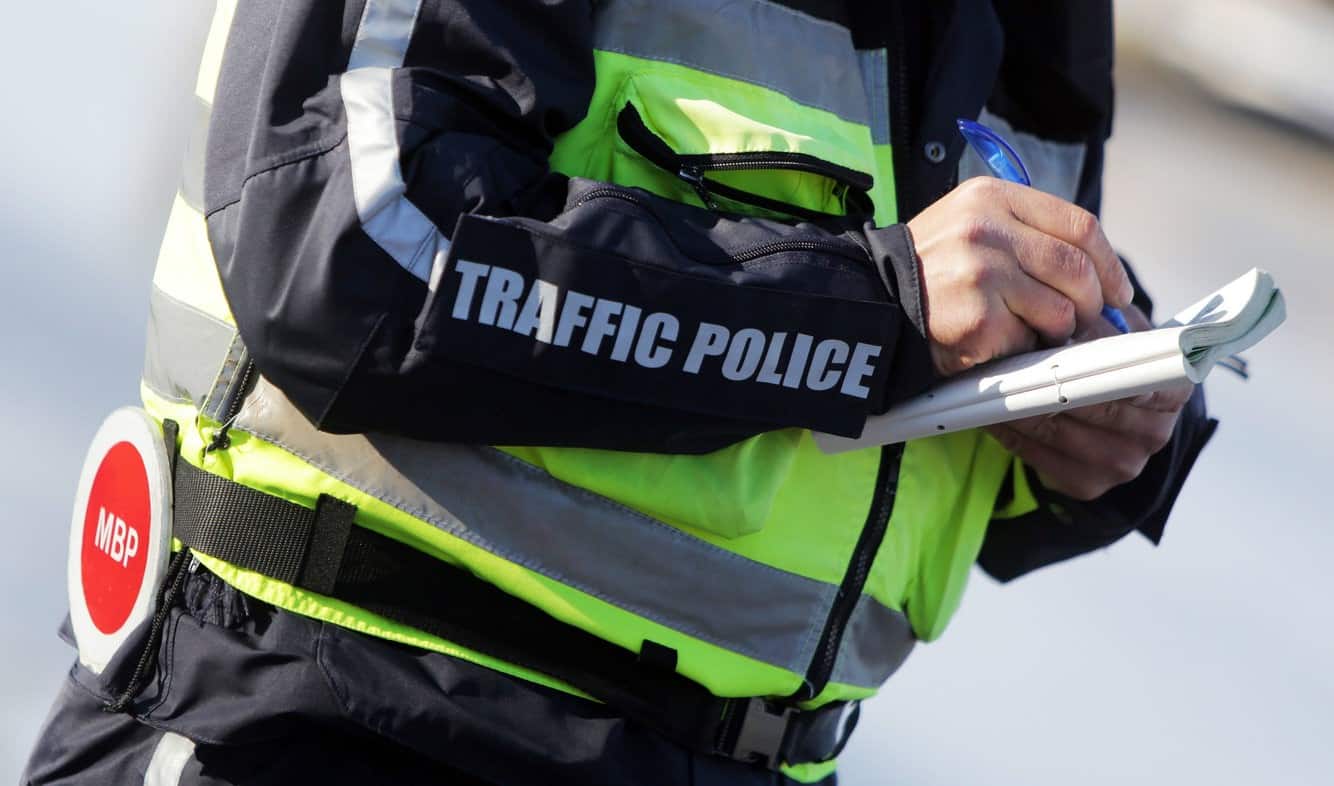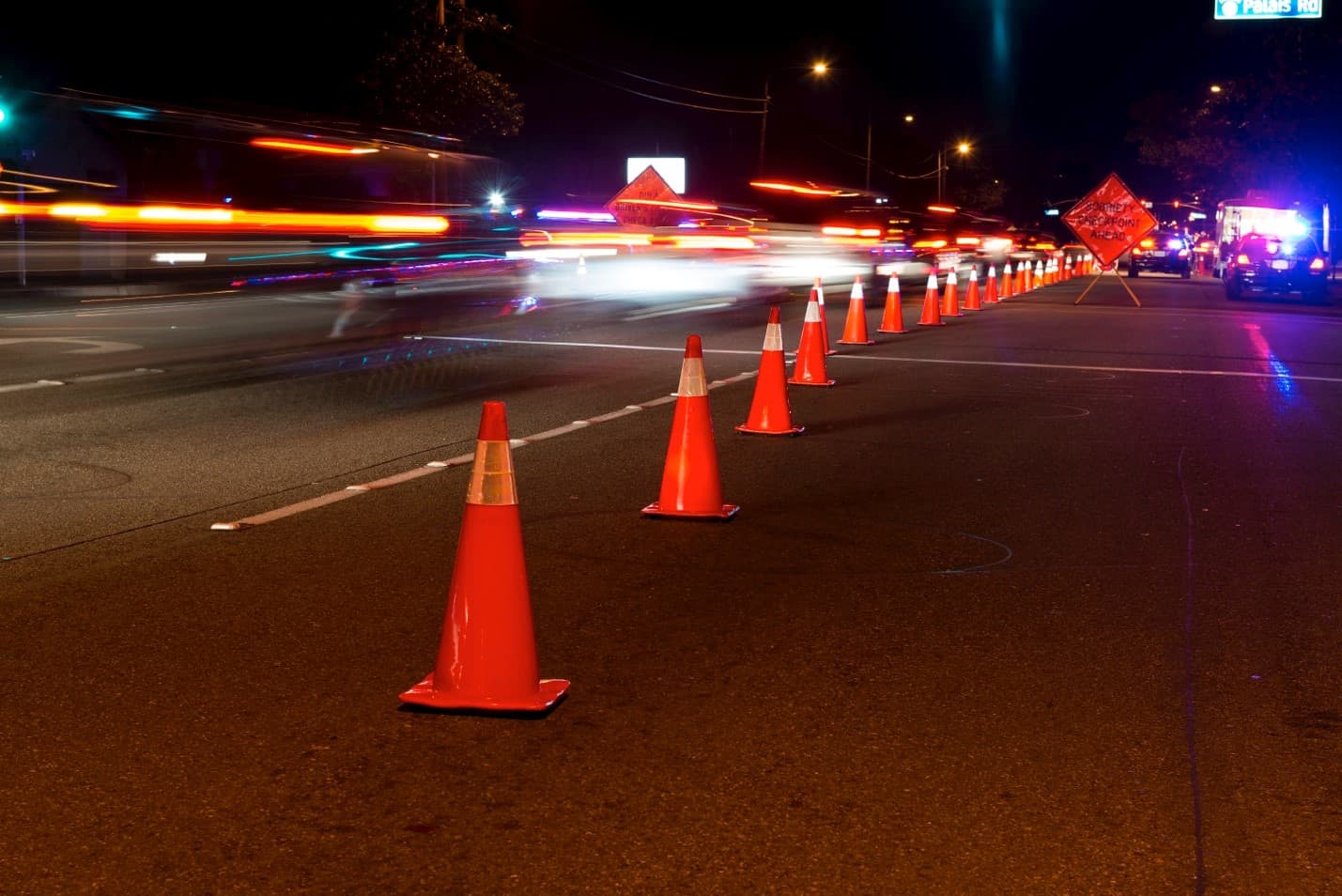Beat Your Denver DUI Charges with Effective Defense Strategies
July 17, 2024

The State of Colorado is committed to making our roads safer by deterring drunk drivers from getting behind the wheel. Besides the Department of Transportation’s “The Heat is year to further enforce their stance on drinking and driving and get intoxicated drivers off the road.
At least, that’s the goal. Sometimes, unfortunately, mistakes are made and the wrong people get charged. Or rules are bent and broken and rights are violated.
Because of this, it is important to know what is supposed to happen at DUI checkpoints, how they are set up, and how the process works – not to mention what you should do.
Well, today we’re going to look at the anatomy of a DUI checkpoint to answer all of your questions.
Site selection. When choosing a site for a checkpoint, there are two things that need to be considered. First, the site can’t create more of a traffic hazard than the results of a drunk driving crash. Along the same lines, the site should safe for both traffic and the officers.
Second, the site should be chosen objectively and based on an unusual number of crashes – drug or alcohol related – or driving violations. So a site can’t just be set up right outside of a bar in order to catch more people. The location must be based on specific data.
Warnings. Vehicles that are approaching the checkpoint should be properly warned in the form of signs, flares, safety cones, lights, and patrol cars with their lights flashing. This gives drivers advance notice of why they will be stopped and will ease their concern that it is, in fact, a lawful stop.
If you choose to avoid the checkpoint because you saw the warning signs that one is coming up, you are allowed to do so as long as you don’t violate a traffic law in the process. Avoiding a checkpoint isn’t grounds to be stopped.
Stop pattern. The officers involved at the checkpoint need to establish the rules for stopping vehicles and cannot deviate from that pattern. For example, if they decide to stop every vehicle, then every vehicle will be stopped. But if they decide to stop every fifth vehicle, the third vehicle can’t be stopped. If an issue arises and the pattern needs to change, a supervisor will make that determination. A random stop is not allowed.
The stop. When an officer stops your car, he or she needs to first explain the purpose of the checkpoint. Then, they will ask if you have consumed any alcohol or controlled substance that day. Depending on your answer, one of two things will happen:
Detection. The officers at a sobriety checkpoint should be trained in detecting impaired drivers. Some of the impaired driving indicators an officer looks for include:
If an officer suspects a driver might be impaired based off of their initial interaction, he will direct the driver to an area out of traffic. If the officer believes you are unable to move the car, someone else will move it.
Investigation. The investigation could have the officer ask you to do two things at once –asking for your license and registration – or perform field sobriety tests. If you don’t pass these tests, the officer can then ask you to take a portable breath test.
If your blood alcohol content (BAC) is above the legal limit – 0.05 for a DWAI and 0.08 for a DUI – the officer can then arrest you and follow the normal arrest procedure. If your BAC is under the legal limit but the officer thinks you are still impaired, a Drug Recognition Expert (DRE) may be called to evaluate you. If a DRE isn’t available, the officer will follow the procedure for handling impaired drivers.
If you are stopped at a DUI checkpoint and end up being arrested for either a DUI or DWAI, you should contact an experienced Colorado DUI lawyer to review the checkpoint and the stop to make sure it was lawful and valid. If any of the above guidelines were violated without a documented reason, your charges might not hold.
About the Author:
Denver-based criminal defense and DUI attorney Jacob E. Martinez is a knowledgeable and experienced litigator with a record of success providing innovative solutions to clients facing criminal charges of any severity. Mr. Martinez has been designated a Top 100 Trial Lawyer by the National Trial Lawyers and has been awarded both the Avvo Client’s Choice Award and Avvo Top Attorney designation, evidencing his reputation for his exemplary criminal and DUI defense work and high moral standards.
Jury Trial - Not Guilty
Jury Trial - Not Guilty
Arapahoe 1st Degree Assault/Vehicular Assault
Jury Trial - Not Guilty
Denver Domestic Violence Assault Case
Jury Trial - Not Guilty
Denver D.V. Assault
Jury Trial - Not Guilty
Denver Careless Driving Resulting in Death
Jury Trial - Not Guilty
Jefferson County Felony Menacing
Jury Trial - Not Guilty
Adams County DUI
Jury Trial - Not Guilty
Jefferson County DUI
Jury Trial - Not Guilty
Jefferson County DUI
Jury Trial - Not Guilty
Jefferson Vehicular Assault/DUI
Jury Trial - Not Guilty
Jefferson County DUI
Jury Trial - Not Guilty
Boulder County DUI case
Jury Trial - Not Guilty
Arapahoe County DUI case
Jury Trial - Not Guilty
Adams County DUI case
Jury Trial - Not Guilty
Douglas County DUI case
Jury Trial - Not Guilty
Gilpin County DUI case
Dismissed
Broomfield County Probation Revocation case
Dismissal
Arapahoe County DUI case
Deferred Judgment
Arapahoe County DUI case
Deferred Judgment
Douglas County DUI case
Deferred Judgment
Larimer County DUI case
Deferred Judgment
Arapahoe County DUI Case
Deferred Judgment
Denver Felony Burglary Case
Deferred Judgment
Arapahoe County DUI case
Dismissed
Arapahoe County Protection Order Case
Dismissed
Golden Destruction of Property case
Dismissed
Jefferson County Protection Order case
Dismissed
Jefferson County Domestic Violence case
Dismissed and Sealed
Jefferson County DUI case
Dismissed
Denver Major Traffic Offense case
Dismissed and Sealed
Broomfield County Domestic Violence case
Dismissed
Summit County DUI Revocation
Dismissed
Denver DUI Revocation
Dismissed
Denver DUI Revocation
Dismissed
Denver DUI +.2 Involving Accident and Injury case
Dismissed
Denver DUI/Habitual Traffic Offender case
DISMISSAL
Denver District Aggravated Theft
Dismissed
Greenwood Village Assault case
Dismissal
Elbert County DUI
Dismissed
Arapahoe County Domestic Violence case
Dismissal
Jefferson County DUI
Dismissal
Denver Municipal Assault
Dismissed
Boulder County Domestic Violence Assault case
Dismissed
Wheat Ridge Assault case
Dismissed
Jefferson County DUI case, with 2+ Prior Convictions
Dismissed
Arapahoe County Domestic Violence case
Dismissed
Broomfield County Domestic Violence case
Dismissed
Arapahoe County Felony Theft case
Dismissed with No Charges Filed
Jefferson County Felony Theft case
Dismissed
Boulder County Felony Theft case


